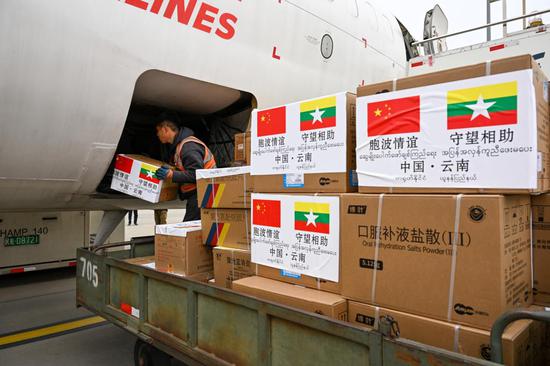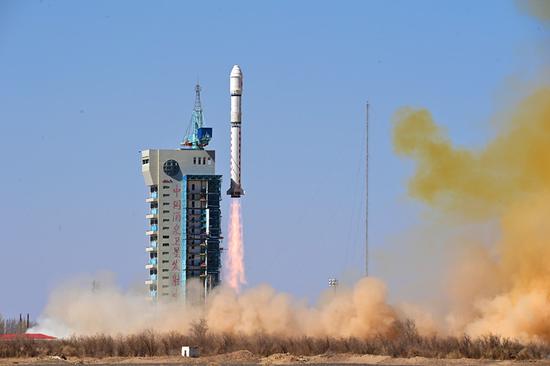The latest tariffs imposed by the United States against its trade partners could disrupt the international economic order and plunge free trade mechanisms into uncertainty while bringing about multidimensional negative effects for economies and consumers, analysts have said.
The key question for now is whether the United States intends to put an end to the free trade order or simply change the rules, said Rasha Al Joundy, a senior researcher at the Dubai Public Policy Research Centre.
The White House on Wednesday announced a universal 10 percent tariff on imports to the U.S. from over 180 countries and territories, and higher tariffs targeting specific countries.
The policy includes tariffs as high as 50 percent on imports from Lesotho, 49 percent from Cambodia, 46 percent from Vietnam, 20 percent from the European Union, and 10 percent for Gulf Cooperation Council countries.
"If the goal is to change the rules, this dilemma could be resolved through negotiation, without fundamentally altering the system. However, if the intention is to dismantle the system and build a new one, the uncertainty could be even more harmful to everyone," Al Joundy told China Daily.
Anis Khayati, an economics professor at the College of Business Administration at the University of Bahrain, told China Daily that the trade tensions and tariffs between the U.S. and major powers will "have multidimensional negative effects on Middle Eastern economies and consumers."
Khayati said imposing tariffs will increase prices for importers — including in the Middle East — and they may ultimately be forced to pass these costs to consumers, increasing their financial burden.
Another area of impact is labor, as many countries in the Middle East employ workers from overseas.
Labor impact
According to the International Labour Organization's 2024 estimates on international migrant workers, there were more than 22 million migrants in the labor force in the Arab states in 2022, comprising 13.5 percent of the total 167.7 million globally.
Khayati said a decline in sales among importers may force companies to take cost-cutting measures, such as wage cuts or workforce reductions, to maintain market sustainability amid lower revenues.
Economically, governments will be forced to allocate resources to support jobseekers through rehabilitation and training programs or unemployment benefits, Khayati said, adding that this required concerted efforts to ensure market stability.
Both experts noted that Washington has excluded oil, gas and refined products from the tariffs, which cushions the burden on these resource exporters in the Middle East.
David Gibson-Moore, president and CEO of Gulf Analytica, a business consultancy to international firms and family offices in Dubai, United Arab Emirates, said in the longer term, GCC countries could experience indirect repercussions although the direct effect of the new tariffs on them "is expected to be limited".
There are concerns that global trade tensions may dampen demand for crude oil, and oil price reductions will push most Gulf countries into a budgetary deficit, he said.
A slowdown in major economies may lead to decreased demand for oil, affecting the oil-dependent revenues of GCC countries. The break-even point for Saudi Arabia's budget is about $70 a barrel, while it is higher for other Gulf countries such as Bahrain and Oman.
Middle East economies rely primarily on imports, which include equipment and machinery for medical, military, industrial and agricultural sectors, Khayati said.
Disruptions caused by trade tensions may prompt producers to change their sourcing of raw materials due to the increased costs caused by the tariffs.
"This could lead to production disruptions and a shortage of goods. As demand continues, the price of the final products will rise, increasing the financial burden on importers and, consequently, leading to higher prices for consumers in the region," said Khayati.
Deniz Istikbal, an economics researcher with Istanbul Medipol University in Turkiye, said: "The trade tensions with the U.S. may push China to seek alternative markets, which would strengthen its relations with the Middle East."


















































 京公網安備 11010202009201號
京公網安備 11010202009201號